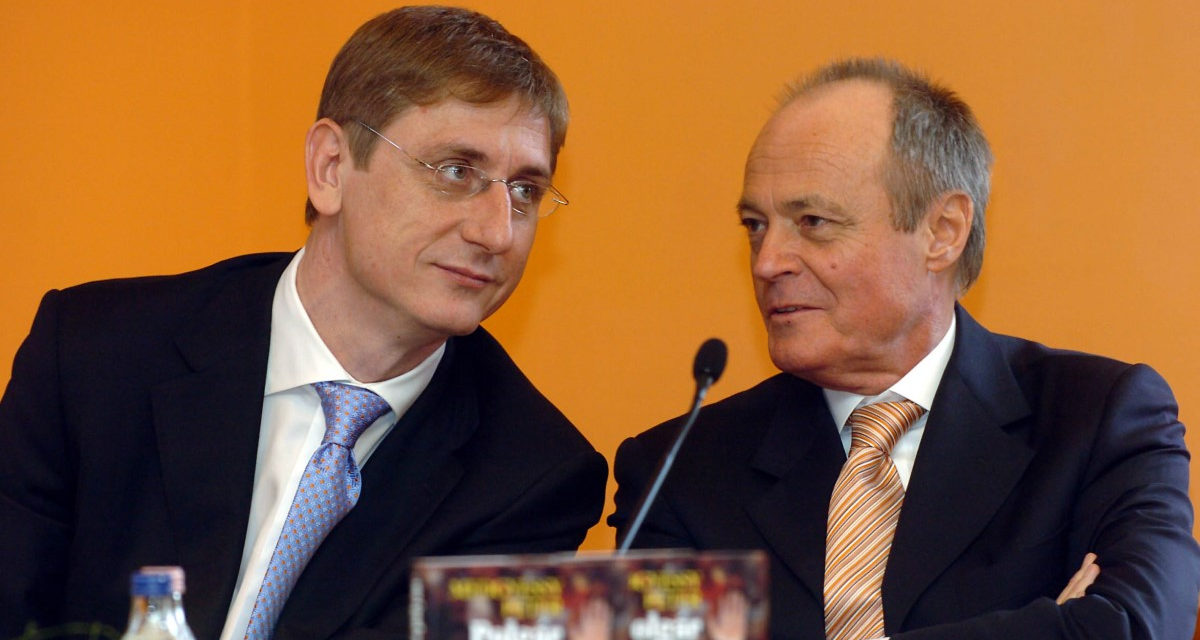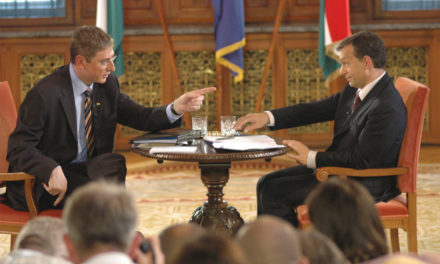The aggressive tone towards the current government that the five opposition prime ministerial candidates allowed themselves in the ATV in the mock debate on September 12 is unprecedented in the thirty-year history of Hungarian democracy.
What was said there and has been said ever since - with the exception of Márky-Zay, because he also said shocking things - can be alarming to every sane Hungarian citizen. After all, what do they "promise" if they come to power?
In short, hair-raising things: 1.: the disregard of the rule of law, the elimination of two-thirds laws with one-half laws, including the cancellation of the current Basic Law; 2.: the termination of the current democratic political system, i.e. a change of regime (but for what?); and finally, 3rd: not just a reckoning with political opponents, but a reckoning, total exchanges of personalities in all forums of public life, the existential annihilation of the political enemy.
The only question is: are they serious about all this? After all, many voters with better feelings and good will may think that this must be just a "campaign text", since in a European Union country such illegal, dictatorial and aggressive methods cannot be used by the opposition when it comes to government...
...The MSZP and Péter Medgyessy formulated completely different goals during the program and campaign. Medgyessy said that he wants to create a government of the "national center", in which there will be no witch hunts, and in fact he will continue some of the actions of the previous government, which creates continuity between the governments' activities. He also spoke about national reconciliation, about the burying of the trenches, during which a national consensus can be established between the left and the right. All this László Kovács , the president of the MSZP, who repeatedly emphasized in his statements that after the MSZP comes to power, there will be no need to change the phone books in the state administration and other spheres. So they both promised that they would not exaggerate political patronage, there would be no showdown, only political appointees and professionally unfit people would be replaced.
But let's look at the facts! After the Medgyessy government came to power, more public administration leaders were replaced in the first nine days than in 1998 after fifty days (!). Not only the administrative secretaries of the previous government were immediately replaced, but also the deputy state secretaries and even a significant number of department heads. And in a one-year perspective, it was already seen that the change had reached the heads of departments, and even lower, which was truly unprecedented. By the end of 2002, there were only a handful of heads of state administration who had worked in the previous cabinet...
...However, the Medgyessy government did not stop for a moment at the personnel changes within the public administration. At semi-state (deco) and state-owned institutions, massive changes occurred in "accessible" leadership positions in the important economic, cultural, media and press, local and civil spheres. A new feature of the Medgyessy government is that the replacements deemed necessary are carried out very quickly, pre-planned, if necessary, by convening extraordinary general meetings, immediate and without justification, intense pressure, etc. forced him out.
Added to all of this was the fact that the Medgyessy government wanted to force personnel exchanges even where it was not legally and constitutionally possible. Specifically, about the independent institutions that guarantee the stability of democracy and the system of checks and balances: the Attorney General's Office, the Hungarian National Bank, the State Supervision of Financial Institutions, the State Audit Office, the courts, etc. and it is about their leaders. These institutions are unassailable precisely in order to protect the survival of democracy, so in principle the practice of patronage cannot extend here. However, the Medgyessy government - for the first time in the history of Hungarian democracy - systematically tried to force the leaders of these institutions to resign using a wide variety of not very selective methods, from blackmail to violent pressure. (See, for example, the chief prosecutor, who was put on trial in front of the parliament every week, or the president of PSZÁF, in order to remove him, a new law was introduced.)
However, the Medgyessy government went even further. He was not satisfied with the series of personnel changes that led to the purge, as well as the pressure exerted on him to voluntarily resign. The State Secretariat for Public Finance was created within the MEH under the leadership of László Keller, whose task was to conduct police, prosecutorial and court investigations of the actions of the already deposed leaders and, where possible, convict the former leaders - possibly leading to prison sentences . in his affairs". This state secretary's function went far beyond any previous practice, as it aimed to not only replace the cadres of the political opponent, but to carry out a sort of showdown using judicial means. This practice, which Béla Pokol called "politicization of litigation", if you think about it more, is not satisfied with relegating the political opposition to the background, but seeks to eliminate it...
... Péter Medgyessy was considered a gentleman compared to Dobrev, Jakab, and Karácsony, but in the end it didn't matter: the post-communist leftist network did its job, and Medgyessy was gradually ignored and later "knocked down", wherever they could, they started a gigantic showdown .
Compared to this, we see and hear the cancerist pribék style, about which jr. recently wrote an excellent analysis in the columns of this paper . My CÖF colleague Zoltán Lomnici Zoltán Felföldi, economist and political scientist. So we can know for sure: the rainbow opposition coalition is not talking into thin air, it is serious about what it says. Even compared to 2002, they are preparing for a more cruel showdown, and if they can, they will do it.
And the union will applaud them for that.
Source: Hungarian Nation
(Header image:
Author: Tamás Fritz
The article can be read in its entirety here.
(Cover photo: mandiner.hu)












